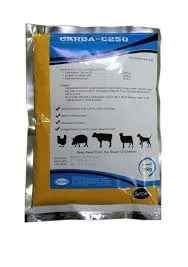- Afrikaans
- Albanian
- Amharic
- Arabic
- Armenian
- Azerbaijani
- Basque
- Belarusian
- Bengali
- Bosnian
- Bulgarian
- Catalan
- Cebuano
- Corsican
- Croatian
- Czech
- Danish
- Dutch
- English
- Esperanto
- Estonian
- Finnish
- French
- Frisian
- Galician
- Georgian
- German
- Greek
- Gujarati
- Haitian Creole
- hausa
- hawaiian
- Hebrew
- Hindi
- Miao
- Hungarian
- Icelandic
- igbo
- Indonesian
- irish
- Italian
- Japanese
- Javanese
- Kannada
- kazakh
- Khmer
- Rwandese
- Korean
- Kurdish
- Kyrgyz
- Lao
- Latin
- Latvian
- Lithuanian
- Luxembourgish
- Macedonian
- Malgashi
- Malay
- Malayalam
- Maltese
- Maori
- Marathi
- Mongolian
- Myanmar
- Nepali
- Norwegian
- Norwegian
- Occitan
- Pashto
- Persian
- Polish
- Portuguese
- Punjabi
- Romanian
- Russian
- Samoan
- Scottish Gaelic
- Serbian
- Sesotho
- Shona
- Sindhi
- Sinhala
- Slovak
- Slovenian
- Somali
- Spanish
- Sundanese
- Swahili
- Swedish
- Tagalog
- Tajik
- Tamil
- Tatar
- Telugu
- Thai
- Turkish
- Turkmen
- Ukrainian
- Urdu
- Uighur
- Uzbek
- Vietnamese
- Welsh
- Bantu
- Yiddish
- Yoruba
- Zulu
10 月 . 09, 2024 17:48 Back to list
minocycline hyclate
Minocycline Hyclate An Overview of Its Use, Benefits, and Side Effects
Minocycline hyclate, a semisynthetic derivative of tetracycline, is a broad-spectrum antibiotic known for its effectiveness against a wide variety of bacterial infections. Used primarily in the treatment of acne, respiratory tract infections, urinary tract infections, and in some cases, periodontal disease, minocycline hyclate offers a potent solution for both acute and chronic bacterial infections.
Mechanism of Action
Minocycline works by inhibiting bacterial protein synthesis. It binds to the 30S ribosomal subunit and prevents the addition of amino acids to growing peptide chains. This action effectively stunts bacterial growth and replication. Minocycline's ability to penetrate tissues and achieve high concentrations in sites of infection further enhances its therapeutic efficacy. Unlike some other antibiotics, minocycline demonstrates a unique ability to penetrate the blood-brain barrier, making it useful in treating central nervous system infections as well.
Therapeutic Uses
One of the most common uses of minocycline hyclate is for the treatment of acne vulgaris. It reduces the inflammation associated with acne lesions and inhibits the growth of acne-causing bacteria such as Propionibacterium acnes. Studies have shown that patients treated with minocycline often exhibit a significant reduction in acne lesions and improvements in skin texture.
In addition to acne treatment, minocycline is effective in managing various bacterial infections, including respiratory and urinary tract infections. It is also utilized in the management of some chronic diseases, such as rheumatoid arthritis, due to its anti-inflammatory properties. Researchers are investigating its potential neuroprotective effects in conditions like multiple sclerosis and Alzheimer's disease, given its ability to cross the blood-brain barrier and exert influence on neuroinflammation.
Benefits
minocycline hyclate

The benefits of minocycline hyclate extend beyond its antibacterial properties. Its anti-inflammatory effects can significantly improve conditions associated with inflammation, such as acne and certain autoimmune disorders. Additionally, patients often find that minocycline has a favorable side effect profile compared to other antibiotics in its class. It has a longer half-life, which allows for less frequent dosing, improving compliance among patients.
Moreover, minocycline's versatility means it can be prescribed in various formulations, including capsules, tablets, and injectables, depending on the patient's needs and the severity of the infection. Its effectiveness against multidrug-resistant strains of bacteria makes it a valuable option in an era where antibiotic resistance is a growing concern.
Side Effects
Despite its numerous benefits, minocycline hyclate is not without side effects. Common adverse effects include dizziness, vertigo, nausea, and photosensitivity, which can cause severe sunburns upon exposure to sunlight. More serious side effects are rare but can include autoimmune reactions, such as drug-induced lupus erythematosus or hypersensitivity reactions, which may necessitate discontinuation of the drug.
Long-term use of minocycline may lead to pigment changes in the skin and teeth, often referred to as tetracycline staining. As with other tetracyclines, minocycline should not be used during pregnancy or in children under the age of eight due to the risk of permanent discoloration of the teeth and potential adverse effects on fetal development.
Conclusion
Minocycline hyclate remains a valuable antibiotic in modern medicine, offering effective treatment options for various bacterial infections, particularly in dermatological and chronic inflammatory cases. While it boasts a range of benefits, it is crucial for healthcare providers to weigh the potential risks and side effects when prescribing this medication. As research continues to explore its broader applications, minocycline hyclate may hold promise for treating not only bacterial infections but also various inflammatory and autoimmune diseases, making it a compound worth monitoring in the evolving landscape of medical therapeutics.
-
The Power of Radix Isatidis Extract for Your Health and Wellness
NewsOct.29,2024
-
Neomycin Sulfate Soluble Powder: A Versatile Solution for Pet Health
NewsOct.29,2024
-
Lincomycin Hydrochloride Soluble Powder – The Essential Solution
NewsOct.29,2024
-
Garamycin Gentamicin Sulfate for Effective Infection Control
NewsOct.29,2024
-
Doxycycline Hyclate Soluble Powder: Your Antibiotic Needs
NewsOct.29,2024
-
Tilmicosin Premix: The Ultimate Solution for Poultry Health
NewsOct.29,2024













